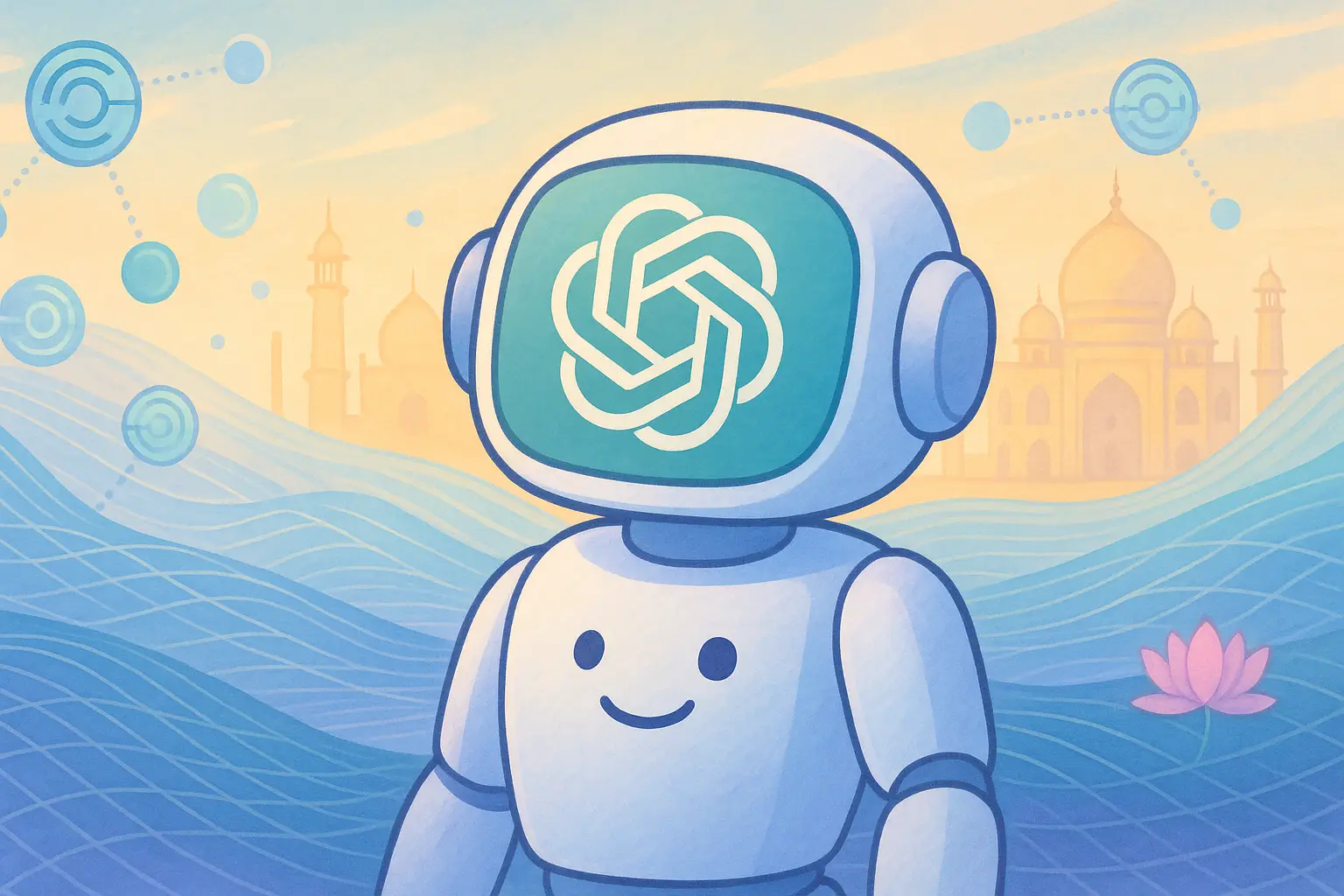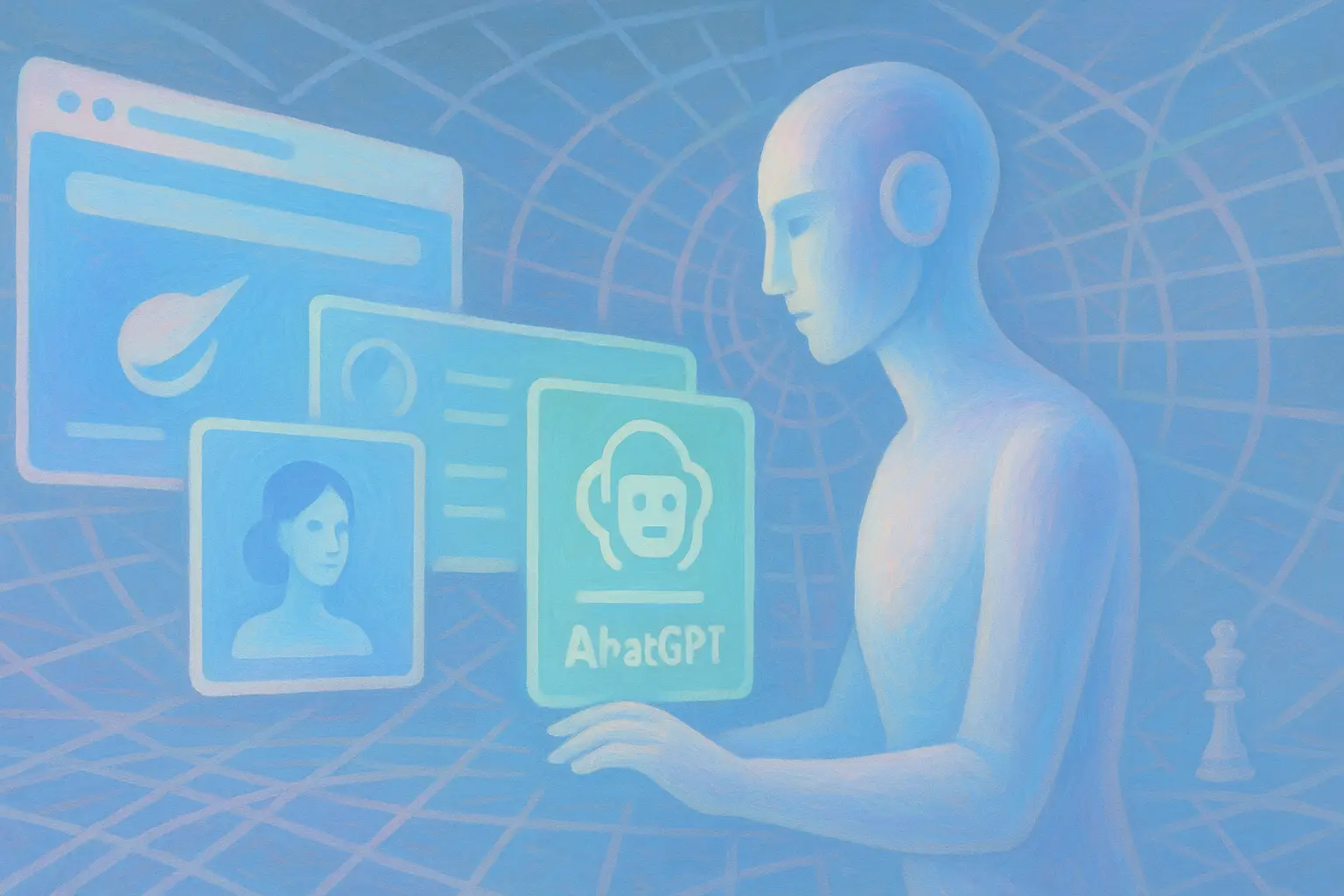
ChatGPT Atlas: AI Browser Revolution
Table of Contents
- Introduction
- Reinventing the Browser: The Birth of ChatGPT Atlas
- Core Features That Set Atlas Apart
- A New Paradigm for the User Experience
- Technical Underpinnings and Innovations
- Comparing ChatGPT Atlas to Traditional Browsers
- Challenges, Limitations, and Safeguards
- The Future of Browsing and Agentic Computing
- Conclusion
- Frequently Asked Questions (FAQs)
Introduction
The internet has always been a window to the world, a resource for learning and leisure, and a medium for connection. Today, that window is getting a radical upgrade. ChatGPT Atlas, the newest AI-powered browser from OpenAI, is not simply about viewing content. It is an intelligent partner, a guide, and even a digital assistant rolled into one, reinventing the way we browse. Released on October 21, 2025, this innovative tool integrates ChatGPT directly into the browsing experience, blending human-like conversation with cutting-edge machine intelligence.
In this article, we will walk through how ChatGPT Atlas transforms the traditional browser model by making the internet interactive, personalized, and action-driven. We will explore its robust features, its unique approach to privacy and control, and the new paradigm it sets for digital interaction.
Reinventing the Browser: The Birth of ChatGPT Atlas
Browsers have long been static windows to the internet. You type, you click, you read. But with ChatGPT Atlas, OpenAI has pushed the boundaries of what a browser can be. Instead of a simple display of web pages, Atlas is built to understand and interact with online content. Imagine reading an article and having a smart layer that can summarize, clarify, or expand on the material with insightful comments. That is the promise of ChatGPT Atlas.
At its heart, Atlas fuses artificial intelligence, personalization, and automation directly into your daily online journey. It is a dynamic platform where conversations blend with browsing, so you no longer switch between screens and tabs to complete tasks. The experience is designed to be seamless, reducing digital friction and offering a new way to interact with information.
By embedding ChatGPT as a core element, OpenAI envisions a future where every web interaction is more efficient, context-aware, and friendly. Atlas is not about replacing human judgement; it is about augmenting it.
Core Features That Set Atlas Apart
ChatGPT Atlas does not simply offer a new user interface. It delivers a suite of innovative features that reshape the way we interact with our digital environments. Below, we examine these standout functionalities.
Built-In ChatGPT Sidebar
One of the most eye-catching features is the integrated ChatGPT sidebar. Accessible with a single click on any webpage, this sidebar transforms static content into a dynamic conversation. It is not just a tool for answering questions—it is an intelligent assistant that reads page context and offers a variety of actions.
For instance, when perusing a lengthy journal article, you can request a concise summary. If you're shopping online, Atlas can compare product features and highlight pros and cons. Even during professional email exchanges, the sidebar can help draft or refine your responses. This constant availability of smart insight makes browsing faster and more productive.
The sidebar is designed with simplicity in mind. It sits quietly on the edge of your screen until called upon, ensuring that your interface remains uncluttered yet powerfully interactive.
Get Comet Invite Now for free
Turn research into results. Automate tasks. Move faster with AI‑powered browsing. Includes one month of Perplexity Pro. Limited‑time offer.
Join Comet WaitlistEmpowering Browser Memories
Another breakthrough is the concept of Browser Memories. Atlas employs a memory system that keeps track of browsing sessions, allowing it to recall previous interactions, preferences, and research themes. This feature means that if you have been researching a topic over several days, the browser can bring back relevant articles, notes, and links upon your return.
This memory is optional and entirely user-controlled. You have the ability to view, archive, or delete any stored interactions. Whether it's recalling recipes you once explored or retrieving job listings from last week, Browser Memories ensure that nothing useful slips through the cracks.
The significance of this feature lies in its transformational potential. No longer do you have to rely on snapshots from the past; the browser evolves with your evolving interests and needs. It builds a continuous narrative of your digital life that helps in decision-making and information retrieval.
Agent Mode: Act, Not Just React
Perhaps the most groundbreaking component is the Agent Mode. This feature pushes beyond the boundaries of passive assistance by allowing ChatGPT Atlas to take action on your behalf. Within Agent Mode, you begin to see the browser as not just a display device but as an active digital personal assistant.
Agent Mode is built to handle a variety of tasks. Need to make a reservation? The browser can help book your table at that popular new restaurant. Looking to fill out a form online? The agent can complete the task accurately with your permission. Even complex activities, like coordinating workflows, are simplified by Atlas.
When activated, the browsing assistant always confirms before executing any important action. This extra layer of control ensures that you remain at the helm while enjoying the assistance of automation. It is a careful dance between machine capability and human oversight, designed to improve efficiency without sacrificing safety.
Smart Search and Discovery
Atlas redefines web search by merging traditional keyword queries with conversational intelligence. Instead of simply matching words on a page, the browser engages in a dialogue with you to refine your query, suggest related topics, and even filter content based on nuanced preferences.
When you start a search from a new tab, Atlas switches instantly between conversational responses and curated links, images, videos, or related news snippets. This hybrid mode of operation is a refreshing alternative to traditional search engines, making research more interactive and tailored to your unique interests.
The integration of smart search capabilities means that you receive a balanced mix of primary source links and contextual interpretation all in one place. It is like getting a personal researcher who understands your questions in depth.
Integrated Writing Assistance
Writing is a vital part of online communication, and Atlas has been built with this necessity in mind. Whether you are drafting a professional email or jotting down a note in an online document, the browser offers inline writing assistance that works across platforms.
By simply highlighting text, you can access suggestions for rephrasing, translations, or even adjusting the tone of your message. This feature is ideal for anyone who deals with multiple writing styles—from the formal to the conversational—and ensures that what you write is polished and precise.
Atlas’s writing assistance is seamlessly integrated into widely used web-based applications. This means that there is no need to export text to another tool; everything is handled within the browser. It is one of those thoughtful touches that make the web feel more communicative and less fragmented.
Privacy and Safety Controls
In today’s digital era, maintaining control over personal data is of utmost importance. Atlas has been engineered with a strong focus on privacy and user control. The browser includes several user-friendly settings that allow you to determine what information is shared and what is kept private.
Key privacy elements include:
- Page Visibility Controls: You can toggle whether ChatGPT can access content on any given page.
- Incognito Mode: This creates an isolated session that doesn't link back to your main ChatGPT account. It ensures that none of your browsing data, chats, or cookies are saved.
- Data Control Hub: A centralized dashboard where you can manage everything from training preferences to specific browsing histories.
Atlas is built on the principle that your personal data stays your own. OpenAI has made it clear that no web content is used to train future models unless you expressly decide to share it in an anonymized form. Such transparency and control empower you to navigate the internet without fear of unwanted exposure or misuse of information.
A New Paradigm for the User Experience
With these features, ChatGPT Atlas transforms the user experience in profound ways. Traditional browsers require you to toggle between different windows and applications. With Atlas, the lines blur between static browsing and dynamic interaction. Every page you visit is enriched by an underlying layer of intelligence that anticipates your needs.
For example, during academic research, the browser not only retrieves articles from public repositories but also organizes them according to your study topics. If you are in the middle of a detailed project, Atlas remembers your earlier research, ensuring that all relevant information is at your fingertips. This creates a seamless workflow that saves time and reduces mental clutter.
In professional settings, the browser can act as your meeting assistant. By summarizing online reports, curating market data, or even managing calendar entries with integrated writing suggestions, Atlas helps you streamline your day. It is a tool that works quietly behind the scenes so that you can focus on higher-priority tasks.
The conversational tone that Atlas maintains never feels intrusive. Instead, it simulates talking to a colleague, offering insights and clarifications when needed. I have seen users describe it as having “an intelligent partner who is always one step ahead.” This partnership does not remove responsibility from the user; it reinforces your capability to interact with the web in a smarter, more efficient way.
Technical Underpinnings and Innovations
Behind the elegant interface and intuitive interactions of ChatGPT Atlas lies robust and innovative technical architecture. Let’s peel back the layers of technology that power this amazing browser.
Atlas is underpinned by the advanced GPT-4.5 Turbo engine—a model that delivers rapid response times and deeper contextual understanding. This engine powers both the conversational aspects and the operational features like Agent Mode. The architecture is designed to thread context across sessions, meaning that it not only responds to the content of one page but builds a continuous narrative that can span days of browsing.
The integration of local browser states ensures that elements like bookmarks, passwords, and browsing histories are preserved and accessible. This local retention is critical for features such as Browser Memories, which build a layered understanding of your digital journey without compromising security.
To ensure safety, Atlas employs a safety sandbox. Whenever the agent executes an action on a webpage, it runs within a secure environment where harmful code or unauthorized data access are prevented. This sandbox feature is especially vital when Agent Mode is executing tasks that could potentially manipulate webpage elements or trigger form submissions.
Another aspect of technical innovation is the transparent management of user data. Atlas segregates internal memory from permanently stored data, giving you the power to delete or archive sessions at will. This design helps maintain a balance between a personalized browsing experience and the critical need for privacy.
Turning the browser into a multi-faceted assistant requires an agile integration of AI with user interface design. Every button, sidebar, and interactive prompt has been refined for fluid user experience, making it feel less like a programmed bot and more like a thoughtful assistant.
Comparing ChatGPT Atlas to Traditional Browsers
It is helpful to see exactly how ChatGPT Atlas stands apart from what we are used to. Below is a comparative table highlighting the differences between Atlas and established browsers like Chrome, Safari, and Edge.
| Feature | ChatGPT Atlas | Google Chrome | Safari | Edge |
|---|---|---|---|---|
| AI Integration | Deeply embedded with ChatGPT sidebar and agent mode | Gemini side panel (limited) | Minimal interactive suggestions | Partial integration with Copilot |
| Memory & Context Management | Long-term, personalized Browser Memories | Session-based recall | Basic history storage | Limited workspace context |
| Automation Capabilities | Agent Mode for real-time task execution | None | None | Limited tasks via Copilot |
| Search Experience | Conversational search merged with curated results | Conventional keyword search | Keyword-based | Keyword-based search with some enhancements |
| Privacy & Data Control | Full transparency with user-controlled toggles | Data collection concerns | Privacy focused, but limited control | Partial controls and data sharing rules |
What stands out with ChatGPT Atlas is not merely its features, but its approach to integrating intelligence into every online interaction. Instead of a browser that is simply a portal to information, Atlas is a companion that helps you act on that information. This synthesis of browsing and reasoning is a bold step into an era dominated by agentic computing—a world where the browser does more than display pages; it actively assists you in using them.
Challenges, Limitations, and Safeguards
No breakthrough technology is without its challenges. While ChatGPT Atlas is groundbreaking, there are certain limitations and risks that early adopters should be aware of.
One potential challenge is over-reliance on automated features. Agent Mode, while powerful, carries the risk of misclicks or misinterpretations, particularly on complex workflows. Imagine a multi-step online form that requires precise inputs—the browser’s automation might occasionally misfire if its understanding of a subtle nuance is off. However, to mitigate this risk, Atlas always asks for explicit confirmation before executing sensitive actions.
There is also the inherent risk of privacy breaches. Although Atlas offers comprehensive settings to manage what data is stored and shared, users must be diligent in configuring these options according to their comfort. OpenAI has taken extra care to ensure that data used to train models is anonymized and that business or sensitive data is never exposed without your permission.
Furthermore, Atlas is still evolving. As in any early-stage system, there might be occasional instances of lag or minor errors as the software handles high volumes of real-time data. OpenAI has implemented robust testing and ongoing updates to address these issues, continuously improving the user experience.
The layered safety protocols—such as the safety sandbox and the confirmation steps in Agent Mode—play a crucial role here. These safeguards not only help in managing risks but also build trust among users who are new to such an integrated browsing model.
Lastly, there might be a learning curve. Users accustomed to traditional browsers might initially find the persistent presence of an AI assistant a bit unusual. Yet, as users become acquainted with the benefits of context-rich interactions, the advantages quickly outweigh this temporary adjustment period.
The Future of Browsing and Agentic Computing
The advent of ChatGPT Atlas marks a significant evolution in how we interact with the internet. We are entering a new era of agentic computing where the distinction between passive browsing and active engagement begins to blur. This shift heralds a future where you not only look up information but also execute tasks and make decisions dynamically as you browse.
For students, researchers, professionals, and casual users alike, the integration of AI into everyday browsing may lead to more efficient learning and work processes. Consider a researcher who no longer must sift through pages of data manually but instead benefits from a tool that remembers past searches, organizes massive amounts of data, and highlights critical information in real time.
For businesses, Atlas presents an opportunity to streamline operations significantly. With its ability to handle routine administrative tasks or process customer inquiries in real time, companies can reallocate human resources to more strategic endeavors. This intelligent automation is a cornerstone of what many industry leaders refer to as next-generation productivity.
Looking ahead, the future roadmap for Atlas hints at even deeper integration with developer tools and productivity software. Upcoming features may include multi-profile support, more sophisticated agent plugins, and enhanced collaboration features that allow teams to interact with shared browser memories in real time. The potential is enormous, and early indications point to a future where Atlas is not just a browser, but a central hub in the digital workflow of millions.
The evolution of ChatGPT Atlas is a testament to how far artificial intelligence has come in transforming everyday technology. It is a clear signal that the way we interact with the web is changing—moving from a passive medium to a powerful, interactive workspace that adapts to our needs. In this brave new world, ChatGPT Atlas leads the charge, redefining the parameters of online engagement and productivity.
Conclusion
ChatGPT Atlas is more than just a browser update—it represents a fundamental rethink of our relationship with the digital world. Integrating robust AI features, seamless automation, and carefully designed privacy controls, Atlas transforms each web page into a stage for interactive collaboration.
The newly introduced features like the ChatGPT sidebar, Browser Memories, and Agent Mode streamline tasks and enrich interactions. Atlas sets itself apart from its conventional counterparts by blending context-aware assistance with on-demand action, offering a user experience that is both intuitive and powerful.
While it faces some challenges, such as the potential pitfalls of automation missteps and the learning curve for new users, the benefits and ongoing refinements point to a promising future. OpenAI’s commitment to transparency, privacy, and user control makes ChatGPT Atlas a tool that not only reinvents browsing but also sets a standard for the next wave of digital interaction.
The journey of integrating AI into everyday tools is still underway. However, with Atlas, the vision of a fully integrated, intelligent web experience is already taking shape. The result is a browser that does more than display content—it collaborates, assists, and evolves alongside you, paving the way for new realms of efficiency and creativity in our daily digital lives.
As we step into this new era of agentic computing, the possibilities are vast. The shift from passive observation to proactive engagement might soon become the norm, with ChatGPT Atlas leading the pack. For anyone eager to experience the future of browsing today, exploring Atlas offers a glimpse of what lies ahead: an internet that truly understands, anticipates, and acts according to your needs.
With its groundbreaking features and a design that marries artificial intelligence with daily tasks, ChatGPT Atlas is not just a new browser—it is a glimpse into the future of the digital experience. Whether you are a student, professional, or casual user, Atlas promises to reshape how you interact with the vast world of online information. Embrace the change and explore the intelligent web with ChatGPT Atlas, where every click brings you closer to a more productive and enhanced digital future.
Frequently Asked Questions
Share this article
Related Articles

ChatGPT Go Free in India: Unlock AI Power 2025!
Explore how OpenAI's ChatGPT Go free offer in India is set to transform AI accessibility, from enhanced features to market impact and strategic benefits.

Atlas vs Comet: AI Browser Battle 2025
Dive deep into the world of AI-native browsers with ChatGPT Atlas and Perplexity Comet. Explore their unique features, philosophies, and the battle that is reshaping how we interact with the web.

How to Get Sora 2 Invite Faster and Easier
Discover the smartest strategies and community secrets to secure your Sora 2 invite quickly and effortlessly. Learn step-by-step tips and tricks in this comprehensive guide.
